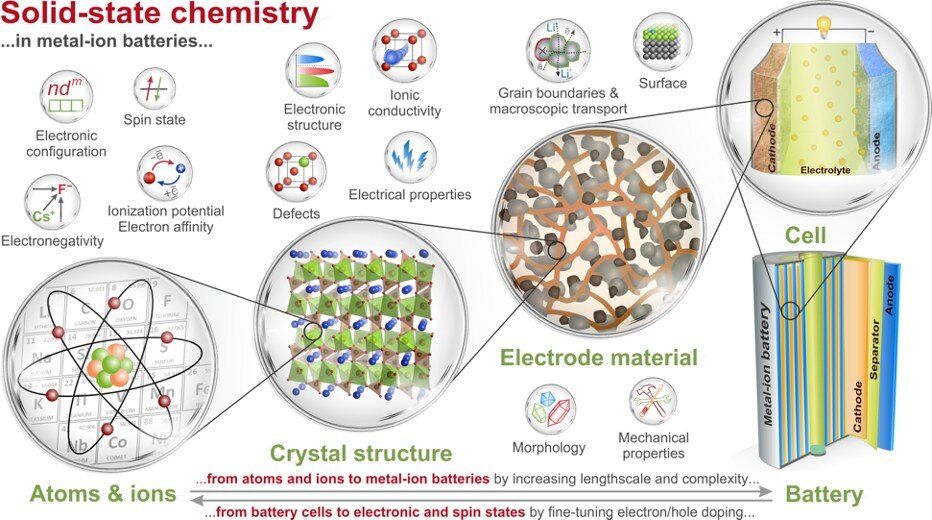Professors from the Skoltech Center for Energy Science and Technology (CEST), Lomonosov Moscow State University and College de France shared their vision on the importance of solid state chemistry in advancements currently awaited from contemporary and prospective metal-ion batteries. The opinion was contributed as an invited review to Nature Communications.
Metal-ion batteries are the main drivers enabling a smooth transfer to renewables and green energy for a sustainable planet. The artfully designed electrode materials have greatly contributed to the development of high-performance Li-ion batteries that was eventually hallmarked by the 2019 Nobel Prize, which had signified the role solid state chemistry. Targeted design of novel metal-ion battery materials to bring the technology to the next level clearly stands as a great challenge for today’s chemistry community.
The individual properties of atoms and ions encoded in the Periodic Table along with the fundamental trends and principles multiplied by further levels of complexity constitute multitude of possible combinations for scientists to find new battery electrodes. Obviously, the researchers need solid guidelines while searching through this huge parameter space for the best chemical combinations and structures.
